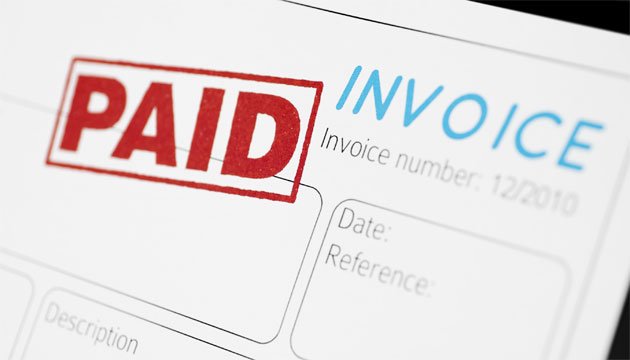
Collecting on overdue accounts can be a frustrating experience for a small business owner, particularly during the start-up period when every dollar of revenue counts toward staying solvent and repaying debts. It’s not the most pleasant part of being an entrepreneur, but not handling them expeditiously will almost certainly endanger your business’s cash flow and long-term viability.
In just 60-seconds, we’ll show you how to establish a sound and rational policy for collecting payments.
0:60 Do What You Can to Prevent Late Payments
Establish a standard policy for payment and make your customers aware of them before starting work. Some types of businesses may require all or a portion of the payment up front, while others allow terms such as payment within 30 days after receipt of invoice (i.e., Net 30). Your invoices should also clearly state any surcharges for late payments.
0:49 Be Careful with Credit
If you provide goods or services on credit, develop qualification standards that are specific, yet fair (e.g., a good credit history from a credit bureau or good bank references). Put your credit policy in writing and make sure all employees understand it. You should also have the policy posted in your store, or available as a handout.
0:36 Take the Right Attitude
Your collections policy will do no good unless you enforce it. Do not shy away from a potential confrontation, but avoid provoking it as well. If you’ve met your obligation and a customer has not, you’re entirely in the right.
0:29 Find Out Why
On the other hand, don’t assume the customer is entirely wrong. Contact the delinquent account and ask politely for an explanation. It may well be that the invoice has been lost or is awaiting approval. A customer with cash flow problems may request extra time. How you proceed may be very situational. Based on your experience with the customer, you may feel confident enough to allow extra time or installment payments. Make sure you and the customer clearly understand any compromise. Be flexible, but firm; and don’t hesitate to follow up.
0:15 Take Stronger Action
If your collection attempts fail, it may be time to turn to an attorney or collections firm. Terms for these services vary; they may require a fee and/or a percentage of the invoice amount, or a retainer. Again, your course of action will depend on the situation. You may decide the amount of the overdue account does not justify the cost and effort to collect. If so, write it off as a bad debt and move on.
0:09 Don’t Make the Same Mistake Twice
Most everyone deserves a second chance. Should customers with poor payment histories approach you about working for them or restoring credit, don’t immediately refuse unless you are absolutely certain they remain bad risks. Ask them to explain how their situation has changed and decide whether it makes sense to restore the relationship. As a precaution, insist on stricter terms such as advance payment or cash-only.
Article courtesy of SCORE.








